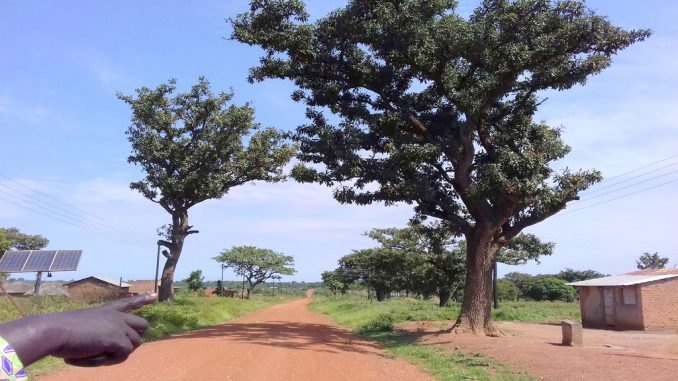
Vigilante groups in northern Uganda strive to protect endangered Shea nut tree
The Ugandan government considers the Shea nut tree as one of the 35 endangered tree species in the country.

However that hasn’t stopped people nearly wiping out the species in order to make a living. After a two decade long rebellion in the region in 2006, youths most of them unemployed, resorted to cutting the shea nut tree because it produces the best charcoal. The best charcoal produces more income.
A study conducted by Makerere University, Uganda’s top university showed that in 2008, fallow land in northern Uganda had 20 Shea nut trees per 2.4 acre without any juveniles (saplings) but by 2017, their number had dropped to between 10-15 Shea nut trees.
To put a halt to this, villagers in Pajule in the remote Pader district formed a vigilante group to protect the revered tree.
Patrick Janani Luwum, the head of the group, locally known as Obolokume told Xinhua in a recent interview that they meet every two weeks and members discuss matters regarding environmental conservation.
“We meet here often and talk about the dangers of indiscriminate cutting of trees for charcoal,” Luwum said, noting that they have over 80 members.
The group’s efforts have started paying off.
“The recent incident has been a shock to us because a local leader was involved (in cutting Shea trees). Everyone wants to know what will happen to him because he has to be held accountable,” Luwum said.
The local leader was last moth arrested by police after he allegedly cut 32 Shea nut trees for charcoal. The arrest followed a tip off from one of the members of the vigilante group.
In most cases, culprits involved in cutting Shea nut trees are fined heavily and made to offer two animals for sacrifice as Acholi culture dictates.
Elsewhere in northern Uganda, there is an increase in the number of local environmental activists.
In Gulu district, there is a campaign by a pressure group dubbed ‘Our tree, we need answers’, which uses the name and shame strategy on social media to expose dubious leaders involved in commercial charcoal production.
Trucks loaded with charcoal have also been impounded by police whenever the group exposes their registration number on social media.
Arthur Owor, director at African Centre for Research, which formed the pressure group, told Xinhua in a recent interview that they have been coordinating with different vigilante groups in Nwoya, Pader and Omoro districts through outreach activities where people are sensitized about the value of protecting the environment.
Owor said there is a committee that is developing guidelines that will inform the eight districts in the region on how to regulate charcoal production.
“We need a clear regulatory framework that is in line with legislation from parliament if we are to protect our trees,” Owor said.
In Pajule, the vigilante group distributes the Shea nut tree seedlings and other species to different households. The group also uses festive days to plant the trees as part of the restoration program.
James Okumu, one of the members of the group said they have planted more than 1,000 Shea nut trees in the last three years especially in areas where they have been massively cut.
“We are looking out for our future generation and not immediate gains. We don’t mind whether Shea nut trees take 50 years to bear fruits,” Okumu said.
The group through arts, music and drama also sensitizes the community about the importance of conserving the environment.
The group also encourages locals to grow Shea nut trees and Afrizelia Africana, and plans to open up a demonstration farm for such endangered tree species.
Villagers have also been sensitized to dig trenches around Shea trees as fire barriers during the dry season when there is bush fires.






